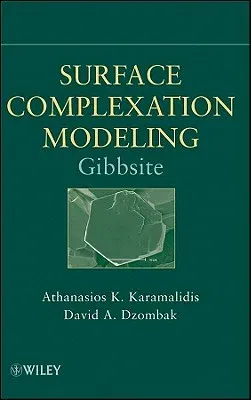This book provides a description of the generalized two layer surface
complexation model, data treatment procedures, and thermodynamic
constants for sorption of metal cations and anions on gibbsite, the most
common form of aluminum oxide found in nature and one of the most
abundant minerals in soils, sediments, and natural waters. The book
provides a synopsis of aluminum oxide forms and a clearly defined
nomenclature. Compilations of available data for sorption of metal
cations and anions on gibbsite are presented, and the results of surface
complexation model fitting of these data are given. The consistency of
the thermodynamic surface complexation constants extracted from the data
is examined through development of linear free energy relationships
which are also used to predict thermodynamic constants for ions for
which insufficient data are available to extract constants. The book
concludes with a comparison of constants extracted from data for
sorption on gibbsite with those determined previously for hydrous ferric
oxide (HFO), hydrous manganese oxide (HMO), and goethite.
The overall objective of this book is the development and presentation
of an internally consistent thermodynamic database for sorption of
inorganic cations and anions on gibbsite, an abundant and reactive
mineral in soils, sediments, and aquatic systems. Its surface has a high
affinity for sorption of metal cations and anions, including
radionuclides. The gibbsite database will enable simulation and
prediction of the influence of sorption on the fate of these chemical
species in natural systems and treatment processes in which aluminum
oxides are abundant. It thus will help to advance the practical
application of surface complexation modeling.

